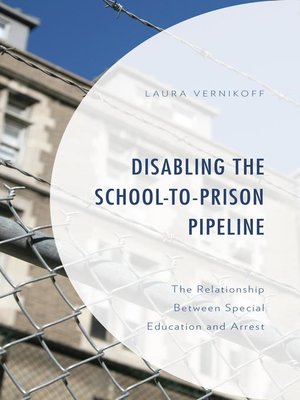Disabling the School-to-Prison Pipeline
ebook ∣ The Relationship Between Special Education and Arrest · Critical Issues in Disabilities and Education
By Laura Vernikoff

Sign up to save your library
With an OverDrive account, you can save your favorite libraries for at-a-glance information about availability. Find out more about OverDrive accounts.
Find this title in Libby, the library reading app by OverDrive.



Search for a digital library with this title
Title found at these libraries:
| Library Name | Distance |
|---|---|
| Loading... |
Young people who have received special education services in the United States are vastly overrepresented in juvenile and adult criminal justice systems relative to their numbers in the general population. Although much existing research blames individual kids for getting arrested, school-level policies and practices affect a variety of student outcomes, including involvement with the justice system. These school-level policies and practices can—and should—be altered by teachers, administrators, and policy makers to reduce the number of young people getting arrested.
Disabling the School-to-Prison Pipeline uses administrative data from New York City public schools and interviews with young people who have received special education services in NYC public schools and been arrested to better understand how schools can help or harm students receiving special education services. Schools cannot fix all problems associated with the criminal justice system in the United States; however, we can certainly expect schools not to make existing problems worse. This book identifies school-level policies and practices that may lead to negative outcomes for students, such as getting arrested, and suggests alternatives.







